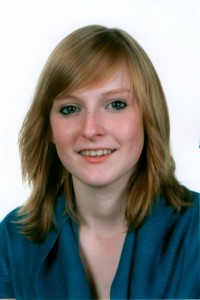A dyslexic student who’s going to be a teacher!

 Britt Lippens is a 21-year-old final-year student in preschool education from Belgium. Being a dyslexic was an additional challenge in choosing a career in education, but her passion for helping children remains a strong motivation. She told us a bit about her background, her aspirations as a young teacher, and her views on working with young children.
Britt Lippens is a 21-year-old final-year student in preschool education from Belgium. Being a dyslexic was an additional challenge in choosing a career in education, but her passion for helping children remains a strong motivation. She told us a bit about her background, her aspirations as a young teacher, and her views on working with young children.
How challenging is it for you to teach children when you are dyslexic?
Fortunately, I do not have to write on a blackboard for primary school children. However, in the kindergarten where I work, I have difficulties with written communication with parents. I can make millions of mistakes at a time occasionally.
Reading is always an exciting procedure for me. Sometimes I stutter or it just takes
longer to finish a sentence, but I am used to it now.
What have your experiences been in dealing with dyslexia?
Tiring … It’s always a battle that you can never win. From childhood, you notice that you can not do much about it.
You become insecure because others can not understand. It creates anxiety. Teachers felt always that I should not aim too high in my life in terms of studies, and that I wouldn’t be able to handle it anyway. I had lost my self-confidence for a while, but now I’m older, I feel I have better control over it. Some friends also keep correcting me in conversations, which makes me face it over and over again.
How do you think the teachers should have been with dyslexic students?
They should be more empathetic and understating. When I was
younger, it was still a taboo. Teachers often didn’t even know what dyslexia is, and
how to handle it. Even now I notice that not all teachers see me as equal to
other classmates, in the classes I take.
What provision does the Department of Education in Belgium have for dyslexic students?
In Belgium, you do have some benefits, but not all are equally helpful. So it is still a matter of research and probation to see what works best. It would be nice if teachers were getting better information and tutoring, to be able to tailor a teaching plan in each case.
What sort of teacher do you hope to be?
I want to be a more patient teacher and to meet each individual’s needs. I want to be there for children and believe in them and their aspirations. So that they never have to feel the way I used to feel at their age.
What is your experience with 3asyR? Is it helpful for you?
I like to have a tool while reading. It has always been difficult to follow a text on a computer screen. It is very tiring and it often takes a long time. With 3asyR I can read at my own pace, without being afraid that I will miss something.